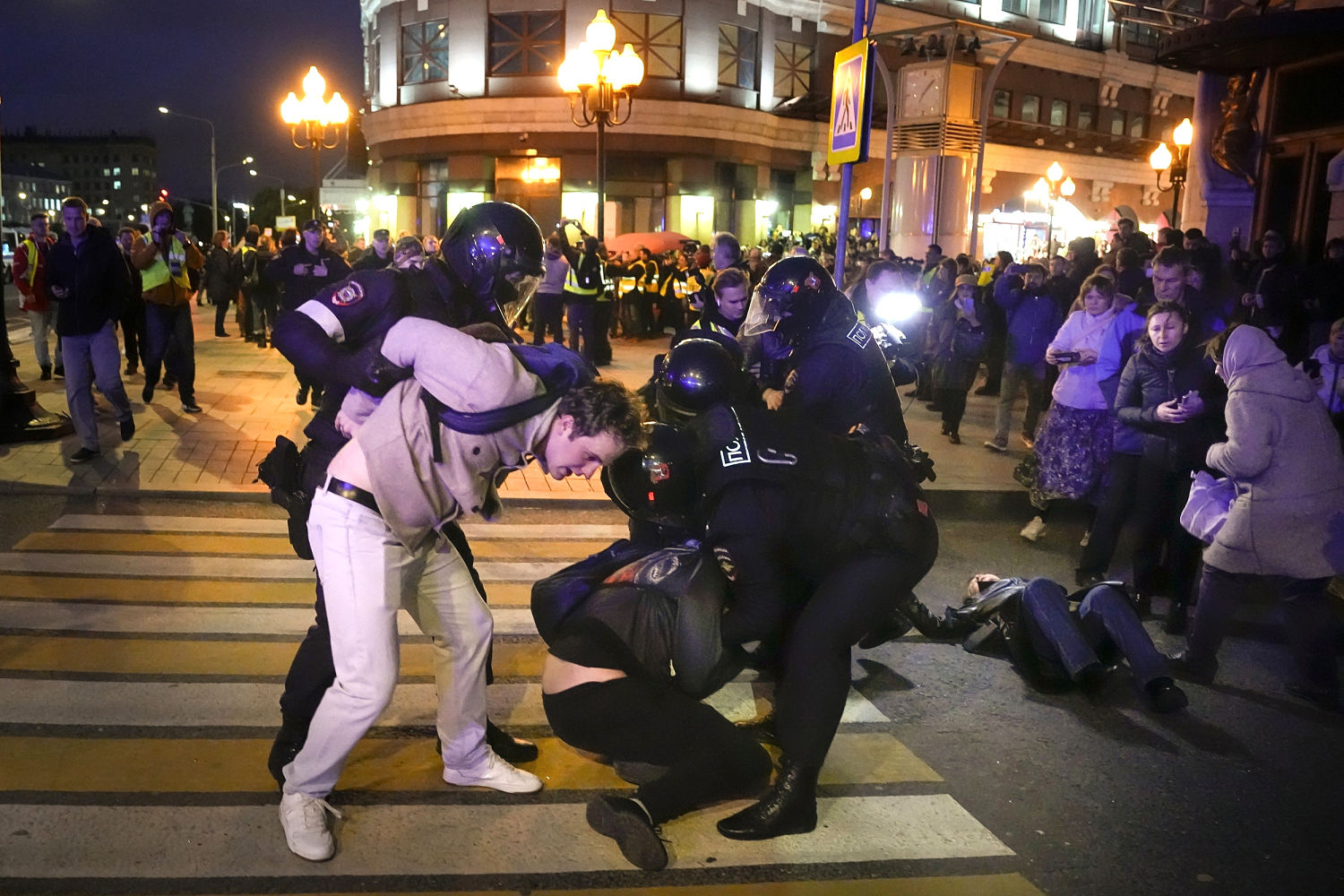Putin’s crackdown casts a wide net, ensnaring LGBTQ people, lawyers and many

TALLINN, Estonia — It’s not just opposition politicians who are targeted in the crackdown by Russian President Vladimir Putin’s government in recent years. Also falling victim are independent voices as well as those who don’t conform to what the state sees as the country’s “traditional values.”
Russia’s once-thriving free press after the collapse of the Soviet Union has been largely reduced to either state-controlled media or independent journalists operating from abroad, with few critical outlets still working in the country. Prominent rights groups have been outlawed or classified as agents of foreigners. Lawyers who represented dissidents have been prosecuted. LGBTQ activists have been labeled “extremists.”
A look at those who have come under attack during Putin’s 24-year rule that is likely to be extended by six more years in this month’s presidential election:
Independent media
Independent news sites largely have been blocked in Russia since the first weeks of the war in Ukraine. Many have moved their newsrooms abroad and continue to operate, accessible in Russia via virtual private networks, or VPNs. Reporting inside Russia or earning money off Russian advertisers has been difficult.
Russian authorities since 2021 also have labeled dozens of outlets and individual journalists as ”foreign agents” — a designation implying additional government scrutiny and carrying strong pejorative connotations aimed at discrediting the recipient. Some have also been outlawed as “undesirable organizations” under a 2015 law that makes involvement with such organizations a criminal offense.
Journalists have been arrested and imprisoned on a variety of charges.
“The Russian authorities decided to destroy civil society institutions and independent journalism completely after Feb. 24, 2022,” said Ivan Kolpakov, chief editor of Russia’s most popular independent news site Meduza, referring to the date of the invasion. Meduza was declared “undesirable” in January 2023.
More restrictions appear to be coming. Parliament passed a law banning advertisers from doing business with “foreign agents,” likely affecting not just news sites but also blogs on YouTube that need advertising and are a popular source of news and analysis.
Journalist Katerina Gordeyeva initially said she was suspending her YouTube channel with 1.6 million subscribers due to the new law but changed her mind after an outpouring of support. “Giving up now would be too simple and too easy a decision,” she said. “We will try to hang in there.”
Rights groups
Dozens of rights groups, charities and other nongovernmental organizations have been labeled “foreign agents” and outlawed as “undesirable” in recent years. Many had to shut down.
In December 2021, a court in Moscow ordered the closure of Memorial, one of Russia’s oldest and most prominent human rights organizations. It drew international acclaim for its studies of repression in the Soviet Union; several months after the ruling, it won the 2022 Nobel Peace Prize. In yet another crippling blow, its 70-year-old co-chair, Oleg Orlov, was sentenced last month to 2½ years in prison over criticism of the war.
Another prominent rights group leader behind bars is Grigory Melkonyants, co-chair of Golos, which monitored Russian elections since 2000. He is in pre-trial detention on charges widely seen as an attempt to pressure the group ahead of this month’s vote.
His arrest last year wasn’t a surprise, said the group’s other leader, Stanislav Andreychuk, in an interview with The Associated Press, because Golos has been under pressure since it detailed widespread violations in the 2011 parliamentary election that led to mass protests.
Pressure against Golos came in waves, however, and at times, the group was able to work constructively with election authorities. It even won two presidential grants.
“We are like a town on a high river bank,” Andriychuk said. “The river eats away at the bank, and the bank recedes slowly. … At some point, we found ourselves on the cliffside.”
Lawyers
Lawyers who represent Kremlin critics and work on politically motivated cases also have faced growing pressure. Some prominent ones have left Russia, fearing prosecution.
Human rights and legal aid group Agora was labeled “undesirable” in 2023, making its operations and any dealings with it illegal.
Three lawyers who represented Alexei Navalny are jailed on charges of involvement with an extremist organization. Associates of the late opposition leader said it was a way to isolate him while in prison.
Prominent human rights lawyer Ivan Pavlov told AP the pressure has scared some attorneys away from political cases. Pavlov left Russia in 2021 while defending former journalist…
Read More: Putin’s crackdown casts a wide net, ensnaring LGBTQ people, lawyers and many

